How it Feels to be Jewish Right Now
Why everyone needs to pay attention before it's too late
This is one of those times when life seems particularly bifurcated.
On the one hand, there’s the war and all its accompanying fear in Israel. It’s the first thing I think about when I wake up, like a beloved relative who’s in the ICU. I have to check in! What happened? Are they okay?
In my direct messages on Instagram, I have notes from friends all over the world, including one I received last night from a past podcast guest. Her daughter’s dance team friend is desperate to bring back her mom and sisters — who are hostages. Could I help? (Me? I wish! Can anyone? I tried to help by giving advice on what to say and how to support her.)
On the other hand, daily life is chugging along with its quotidian concerns. What should I make the kids for breakfast? Packing. Doctors’ appointments. I’m out of conditioner! Did I update that brochure yet? Sometimes the rest of it feels insignificant. Like, how can I possibly be on the living room floor making influencer boxes of my funny, escapist debut novel when there are such heavy things to hold!? Who even cares?
But then I listen. I read. I get advice from friends and strangers. One of the main things I’m hearing is: Don’t stop. Find joy. Keep going. Double down. Double down on life’s simple pleasures, accomplishments, and celebrations. Double down on your commitment to the Jewish community. Double down on work, family — you must!
And I do care. I am proud.
So I’ve decided to mix the two. Yes, I’m continuing to record podcasts for Moms Don’t Have Time to Read Books about wonderful novels and memoirs as scheduled. (And yes, I still release seven podcasts a week. This week, for example, I recorded eight episodes.) But I’m supplementing the schedule with urgent discussions with thought leaders around the world.
I spoke to bestselling Israeli author and past podcast guest Einat Nathan yesterday morning, Zooming with her in Tel Aviv, and uploaded it immediately to our Zibby Media YouTube channel, unedited.
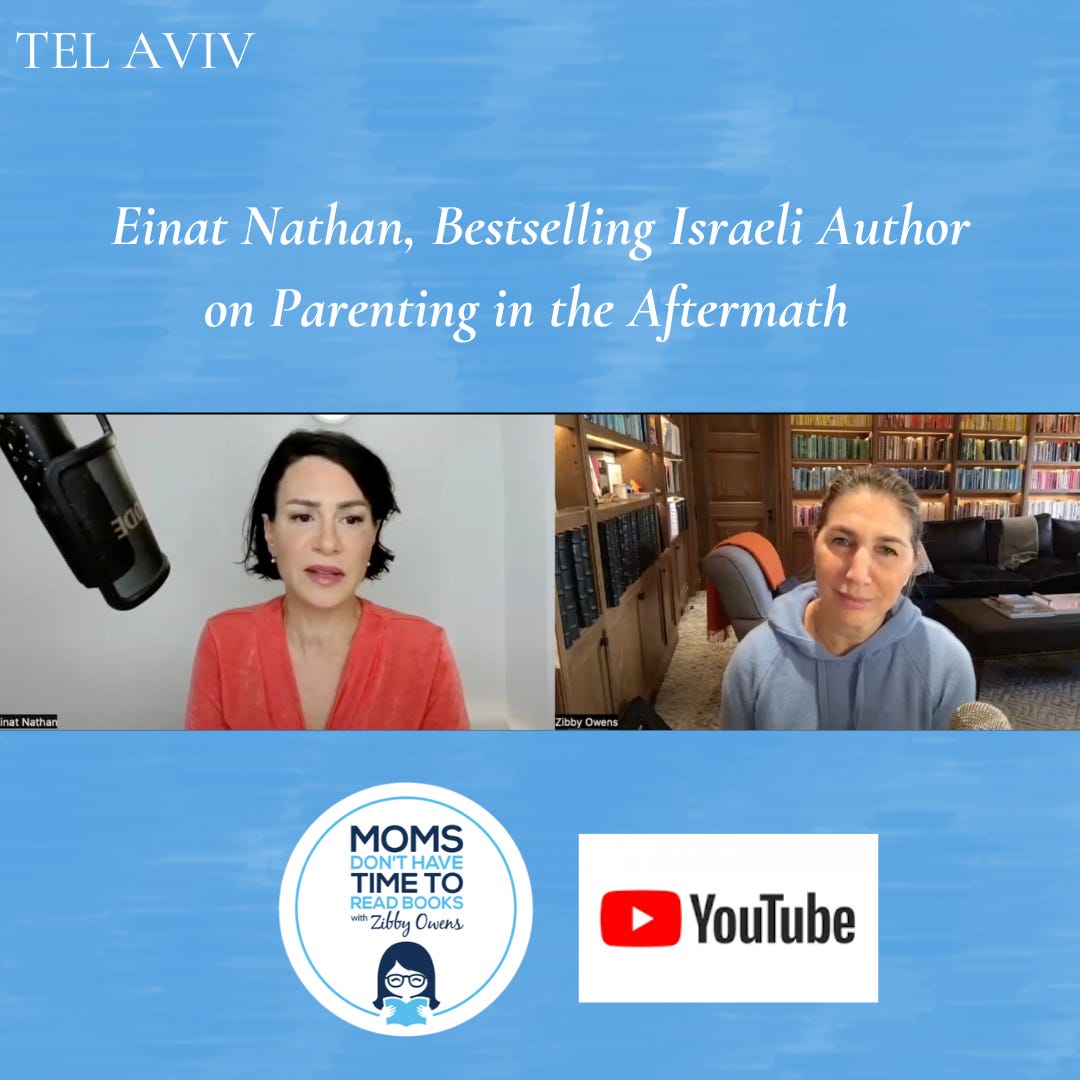
As I ran in and out of the dressing room in between my mammogram, sonogram, and bone density scan in my pink hospital robe, I was copying and pasting the link to different Facebook pages, then getting examined myself inside out.
I know this is not an original thought but seriously, when will we get a better mammogram solution that doesn’t hurt so much!? Who is working on this!? But — see what I mean? Who cares about this level of routine discomfort when my counterparts in Israel are being raped and beheaded?
Einat, a chic, gorgeous, famous Israeli woman, is the one talking to the kids from the kibbutzes post-attack. She shared how moms would show her their WhatsApp groups for their kids’ ballet or soccer and say things like, “Look: only two girls from this group are still alive.” Then the moms would ask her: “How do we explain this to our daughters, that all their friends are dead?”
She spoke about the mom who jumped out of a third-floor window, their “high-tech” safe room broken into, to avoid being burned to death — she made it a fun game for her three kids to convince them to do it. How her 11-year-old broke both his legs in the jump. And yet, they ran.
I compiled an article for Zibby Mag with tips for coping by Child Mind founder and author of The Scaffold Effect, Dr. Harold Koplewicz. I read and published a beautiful heartfelt essay by Sarah Sassoon, who I emailed with all week, writing from Jerusalem.
Earlier in the week, I interviewed a New Yorker, Rabbi Diana Fersko, about what she’s saying to her congregation and what’s she seeing. Her book, We Need to Talk About Antisemitism, seems particularly prescient. It came out several months ago. Did we listen?
We’re certainly talking about antisemitism now. I saw an old friend yesterday morning, one of my college roommates. She was asking — as many are — why? She was surprised by the level of vitriol and unmitigated hate.
I explained to her that this type of thing is exactly what we Jewish people train for. We celebrate Passover and discuss how we had to flee to the desert in Egypt without time to have our bread bake, so we eat matzoh. Every year, the same story, the same message: We have to be ready to flee. We are rarely safe. We are a wandering tribe, often expelled from our lands.
We celebrate Hannukah and repeat stories of the destruction of our synagogue and how despite the attacks, we somehow found enough oil to keep that candle going. So we light candles for eight nights. To remember that we survived.
Our celebrations are rooted in pain, designed to keep us on high alert.
And then of course, there’s the Holocaust, which we all learn about in Hebrew School, at home, at school, from family, from movies, from books, from survivors. We’ve studied the patterns closely, so many times, trying to understand how six million Jews were exterminated not even 100 years ago. Never forget. How Israel became a new refuge, afterwards. We know that when a bat swings through a temple’s glass door, as happened to Rabbi Fersko’s Village Temple, it isn’t an isolated event. It’s Kristallnacht.
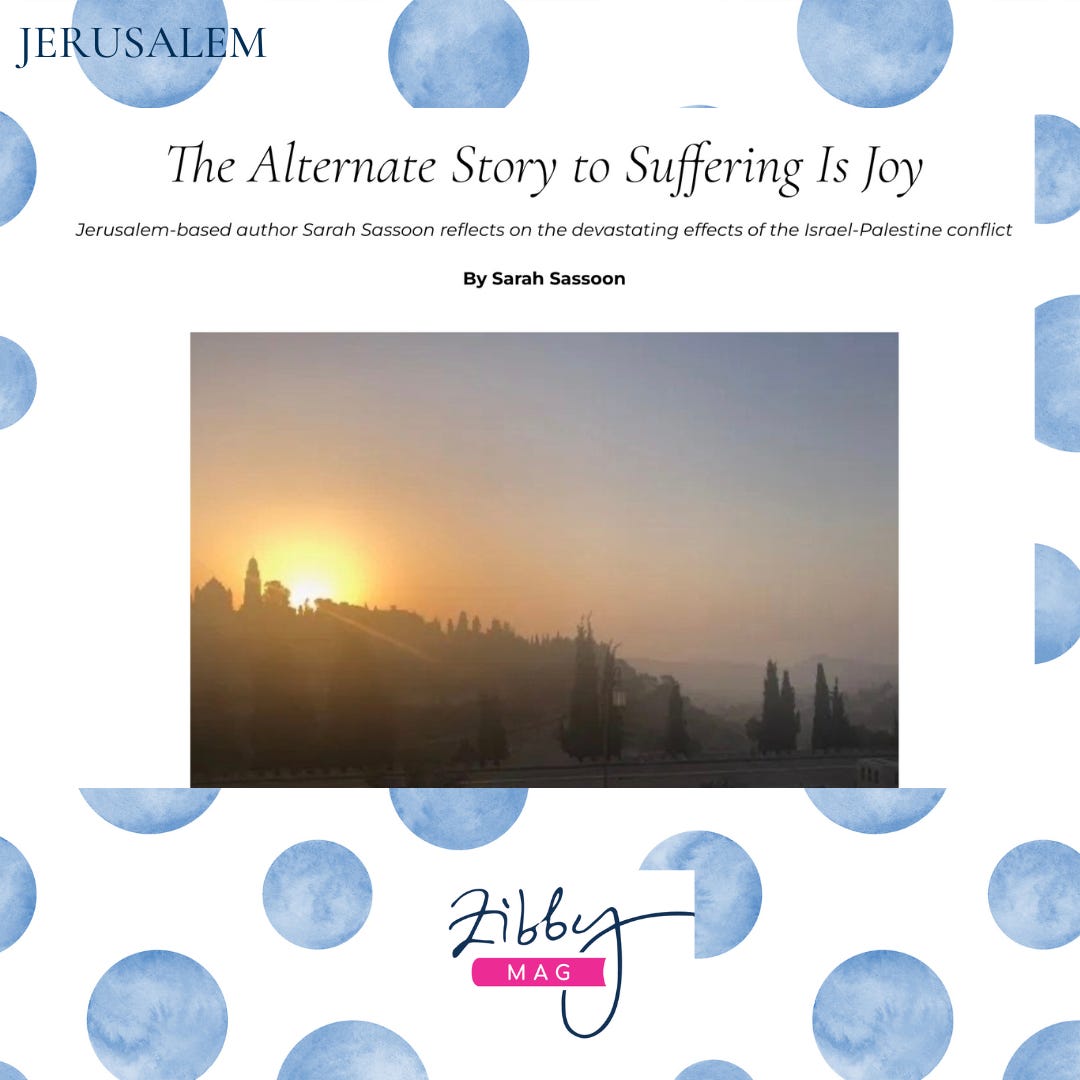
When swastikas start appearing in New York like they did this week — on the Second Avenue Deli, also on 75th and Second Avenue —they aren’t isolated acts of graffiti. They are the beginning. The alarm bells. Take notice. Be ready. It could easily be like last time: the start of business closures, rights stripped, gold stars sewn on clothing, homes taken away, gas chambers. It’s a clarion call, like a high-pitched whistle that only dogs can hear and sets them racing off. We hear it.
This hatred isn’t new. But it is back after a long hiatus. Why? Does it even matter? Why is any religion or race or gender or sexuality discriminated against? The important question is: what do we do about it? What now?
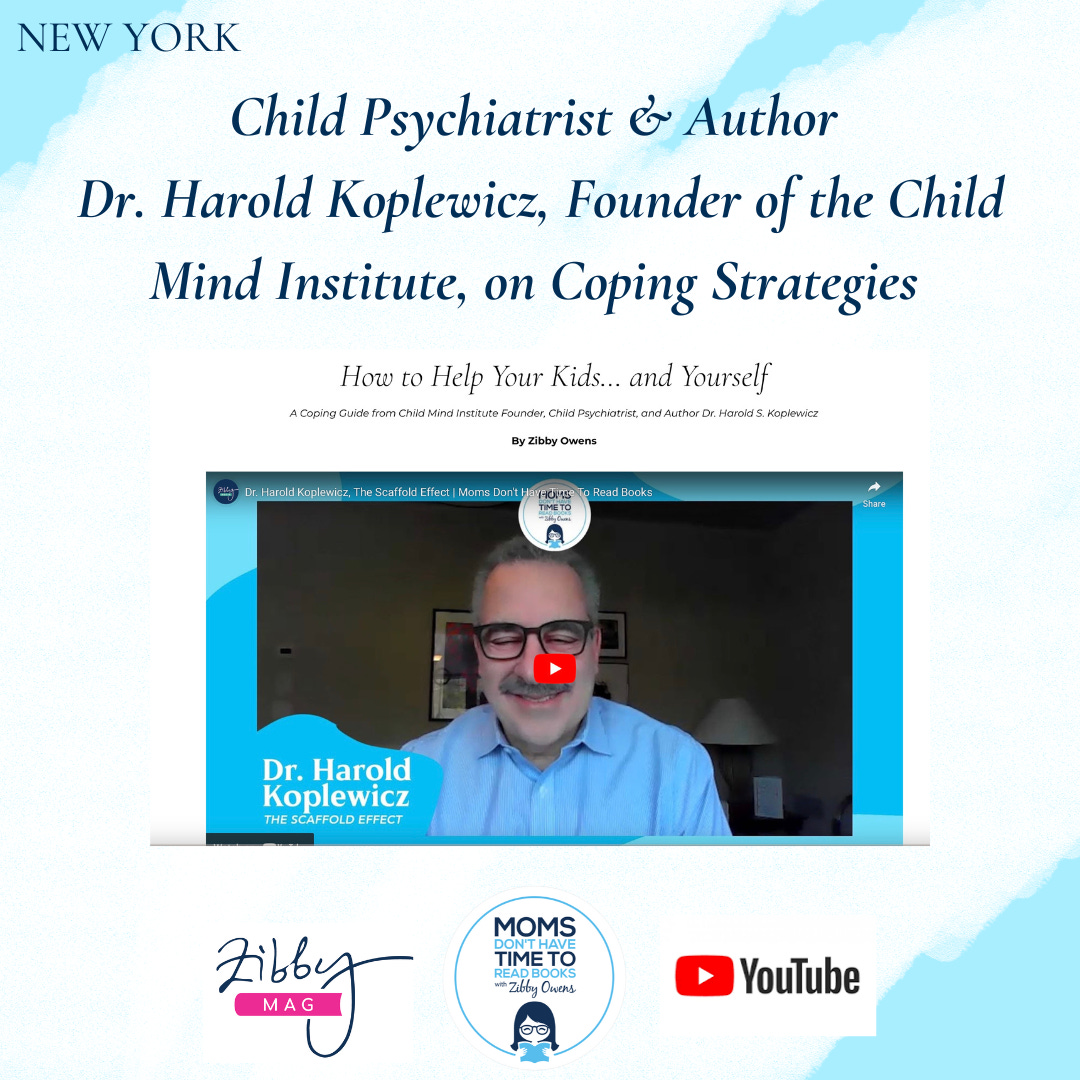
The fear of “your Jewish friends” as all the Instagram posts are calling us, who you’re supposed to “check in on” like we have a cold or something, is rooted deeply in thousands of years of history. We know where this has gone before. We know that people just like us were torn from their homes, paraded naked in courtyards, separated from their loved ones, killed.
When we see teenage girls being pushed down the street in Israel, bleeding, we see every Holocaust documentary. And that is why we quiver.
When I was learning about the Holocaust back in middle school, I remember asking my mom, “Why didn’t the Jewish people in Europe leave when things started getting bad?! It seems so obvious what was coming! Why didn’t they go to different countries where they were safe?” My mom answered, “Oh honey. Because those were their homes.” So? I thought.
As I look around my own home, my place of safety, security and refuge, I hear that refrain in my head playing over and over. Those were their homes. When is it time? Where is it safe? Is it coming? Or will things proceed as normal, the way they have been the previous 47 years of my life? Six months ago I was in Amsterdam, walking around Anne Frank’s attic hiding space with my family thinking: Can you even imagine? I can.
Halloween may be coming in a few days, but for the Jewish people, for me, ghosts of those millions of murdered Jews — including the new arrivals from two weeks ago, welcome! — are always haunting me.
You don’t have to just check in on us. You have to start asking yourself what lengths you would go to to save us. What would you have done back then? Would you have hidden us? Helped us secure passports? Turned us in? What would you do if it all happened again? What will you do, now?
This may sound alarmist. But this is steeped in the generational trauma of every single Jewish person, seared into our DNA like those tattooed numbers, imprinted on all of our souls.
You might not be able to tell who we are just by looking at us. But make no mistake: we are a tribe. And we are trembling. Watching. Planning. Praying. What will you do?
Please share this post.


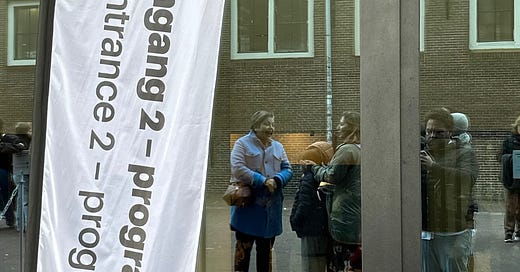


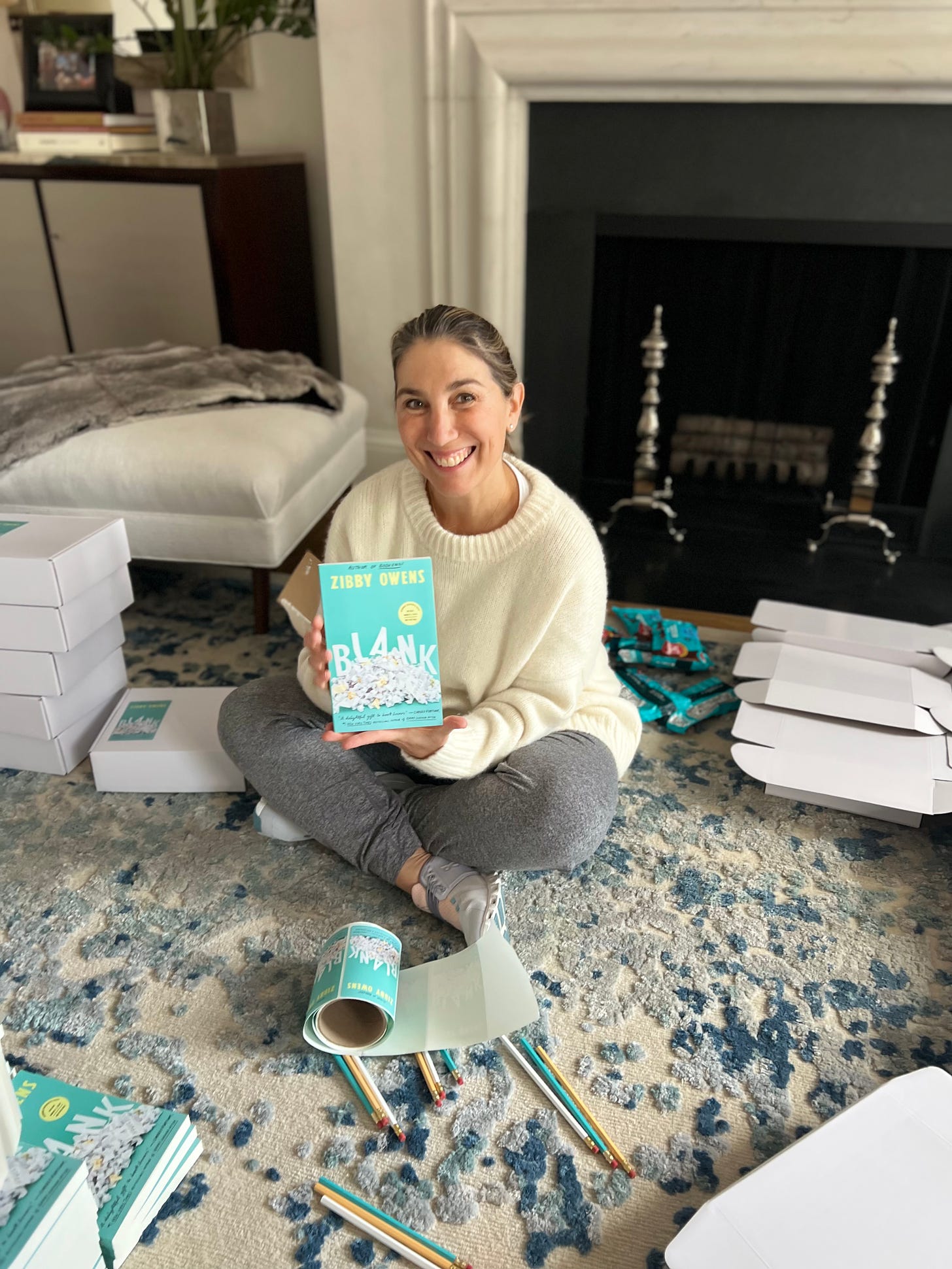
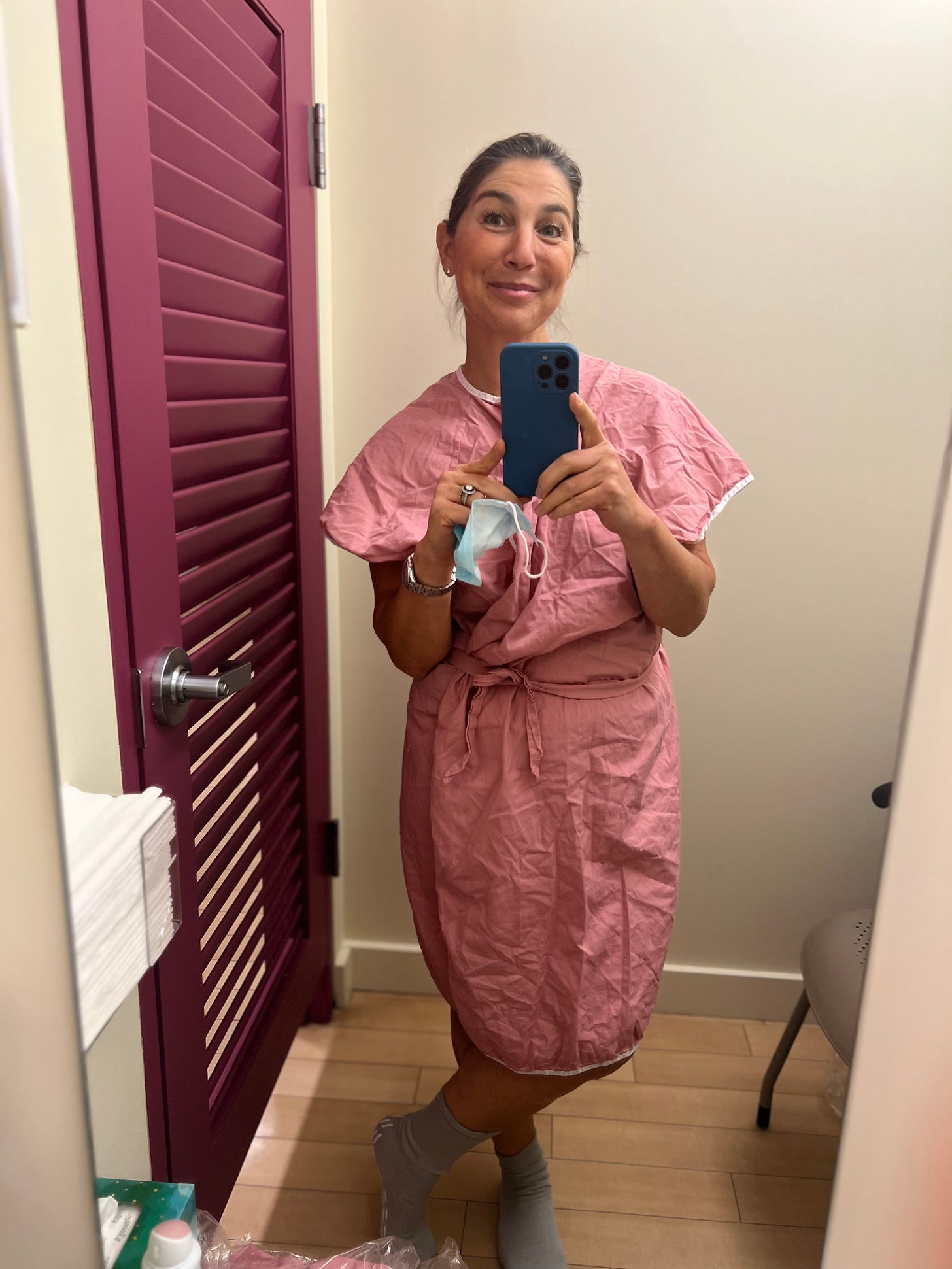
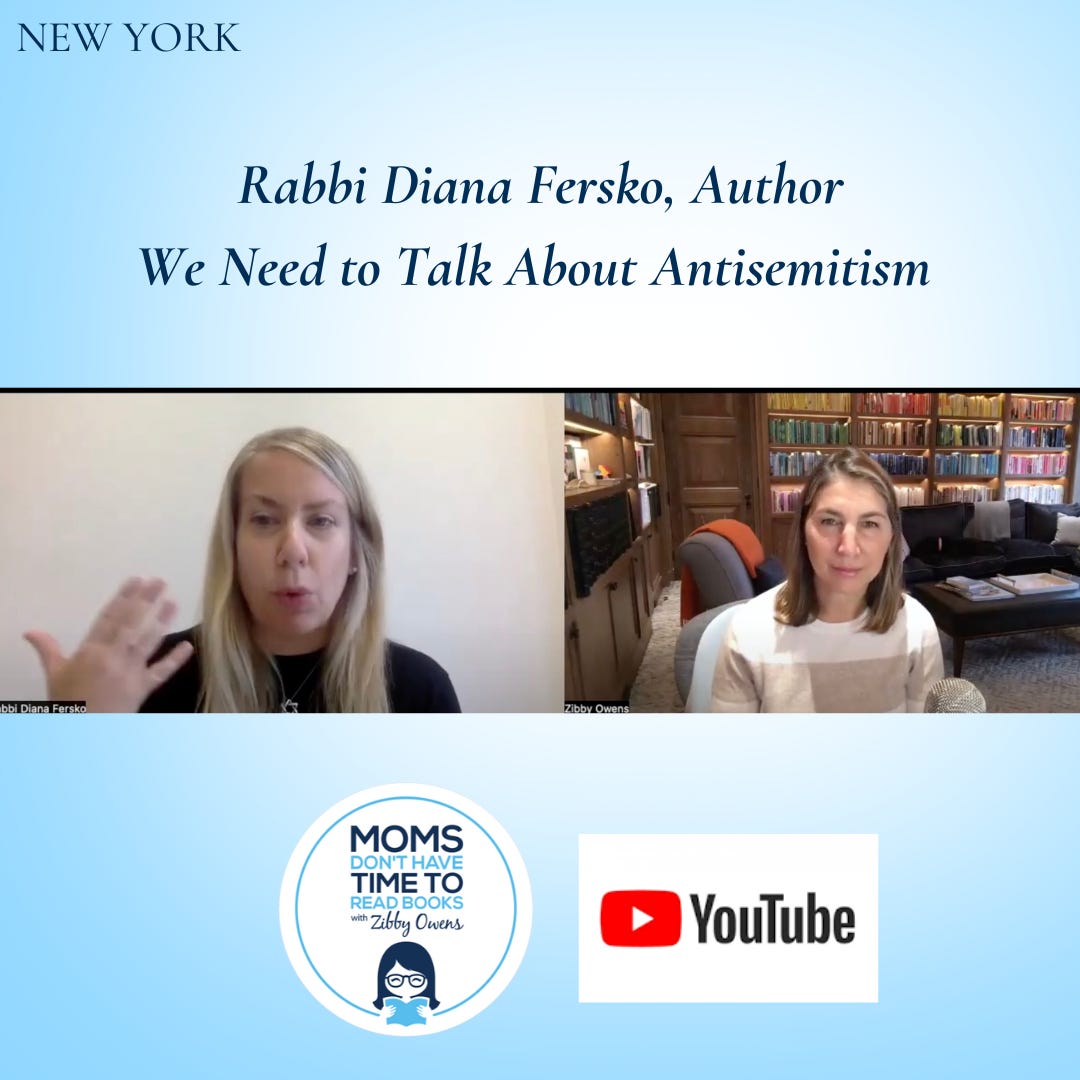

This was spot on; I’m grateful to you for writing it. As a 60 year old secular American Jew whose great grandmother was murdered by Nazis in 1942 in Ukraine (she never made it to the camps; she was just marched out to the forest and forced to dig her own grave), I was told the stories again and again by my dad. I was also told: the world will hate you because you are a Jew. I didn’t believe him; he was right. Over the years, I’ve sent money to feed children on both sides of the border; I’ve regularly been part of literary and culinary peace efforts. And yet, after the events of the 7th, I heard everything: that the value of Jewish lives is inconsequential. That maybe the attacks were staged. (This reminded me of the far right wing who said that the Sandy Hook shooting in my town also never happened.) Most of all, I heard nothing. Silence. People I love never checked in with me, even though a family member was supposed to be at the rave and decided not to go at the last minute. This is an issue of humanity: reach out to the people in your life who are in pain. Let them know you’re there. The first person to
contact me was a half-Palestinian friend with a teenage son. We wept together. What will happen to this world. Make no mistake: this was our Kristallnacht. In some places it has been a literary and social Kristallnacht. In other places, it was just pure unadulterated Jew-hating with a rationale. Nothing more, nothing less.
"The fear of “your Jewish friends” as all the Instagram posts are calling us, who you’re supposed to “check in on” like we have a cold or something, is rooted deeply in thousands of years of history." it's all too much to bear right now. This is all beautifully put and horrifically prescient at the same time. Sending love as a fellow tribeswoman on the west coast.